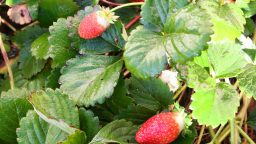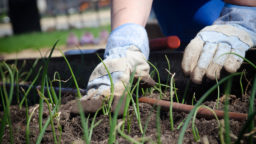I’m sure that I will get people who disagree, but that’s why the article is titled “crops I don’t recommend” instead of “crops you shouldn’t grow”. Everyone has access to different resources and has different levels of experience and time they are willing and able to put into their garden. If you have a lot of money, and a lot of time, and you don’t mind putting a lot of work into growing a certain crop because you enjoy the satisfaction of overcoming the inherent difficulties in doing so, then great, grow whatever crops you want to. But for the rest of us, these are a few crops that I, personally, would recommend that you don’t waste your time with.
Asparagus
Don’t get me wrong, I love asparagus, and I know that it is difficult and expensive to get tasty young asparagus in the store. But I personally take a utilitarian approach to gardening and if I can get similar nutrition from a crop that is easier to grow, then I will. Asparagus takes years to produce, requires a lot of space once it does, and will eat more fertilizer than green I have ever grown. If you aren’t going to be deterred by my warnings then at least do yourself a favor and buy asparagus roots and not seeds, you will never get anything from the seeds.
Strawberries
The low sprawling nature of strawberries make them difficult to mulch. Any crop that is difficult to mulch is also going to be difficult to water and to keep weeded. Add to these difficulties the fact that mice and rats love to beat me to my strawberries and I give up. From my experience you need to grow strawberries in a raised bed with store bought top soil, water them on a timer, and cover them with wire to protect them from pests. That is too much work for so little reward.
Head Lettuce
I have nothing against head lettuce varieties, but I have never experienced the same level of success that I have with leaf lettuces. I always end up having some level of rot of pest damage in a head lettuce, and even if it is minimal, some of the lettuce ends up in the compost anyway because I didn’t eat it fast enough. On the other hand, leaf lettuce is much less likely to rot or be bothered by pests, and I can harvest as much or as little as I need for each meal, so it is as fresh as ever each time I eat it.
If you have had success with these crops, then continue growing them. But if you haven’t tried them yet and are considering growing them this season, you have been warned.
If you liked this, you might also enjoy…

